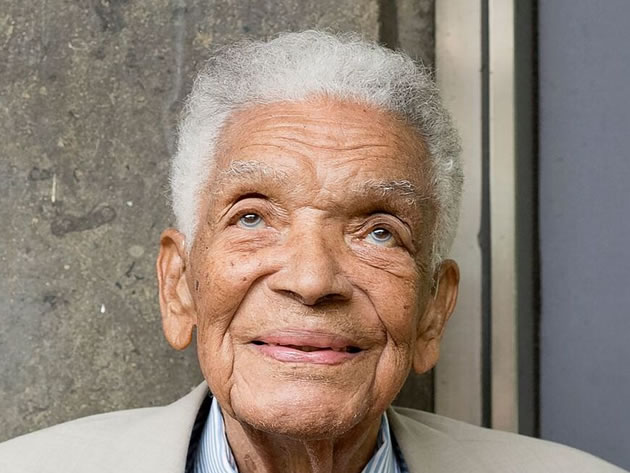Film Star Chosen As Black History Month Local Hero
Earl Cameron’s 50 year acting career included a key role in a James Bond film

Earl Cameron in 2017. Picture: University of Warwick
October 29, 2020
An actor whose film and TV career spans over 50 years has been nominated as a local hero for Black History Month.
Earl Cameron CBE, a trailblazing black actor in the 1950s British film industry, has been selected by local London Assembly Member, Dr Onkar Sahota AM, as his Black History Month local hero.
With his appearance in the 1951 film, Pool of London, Bermuda-born, he became the first black actor to appear in a starring role in a British mainstream movie, playing the romantic lead.
Mr Cameron passed away in July at the age of 102, but during his life lived near to Ealing Film Studios and later in Acton, performing a number of roles on the big screen, in the West End and on television. One of his best known roles was as James Bond’s assistant where he played alongside Sean Connery in Thunderball.
As one of his last appearances, he played a part in the 2010 film Inception at the age of 92 years old. In 2009, he was made a CBE.
During Black History Month, Dr Sahota is also echoing the Mayor’s calls upon the Government to improve the national curriculum by ensuring it is more representative of BAME history and culture and reflective on Britain’s colonial history and legacy.
To this end, City Hall has recently introduced a new Black Curriculum to be rolled out to hundreds of schools across the capital who are currently signed-up to the wider London Curriculum programme.
Local London Assembly Member, Dr Onkar Sahota AM, said, “Almost seven decades ago, Earl Cameron broke down barriers in the British film industry with Ealing Studios. He paved the way for future generations of black British acting talent and his legacy and career should be widely celebrated.
“Far too often, the contributions that black people have made to society are suppressed or glossed over.
“This is a problem that goes to the heart of our education system which has failed to amplify the historical and cultural voices of BAME communities.
“The way to remedy this is to look again at our national curriculum and reform it so it is more representative of the diverse and pluralistic society we live in”.
Related links
|